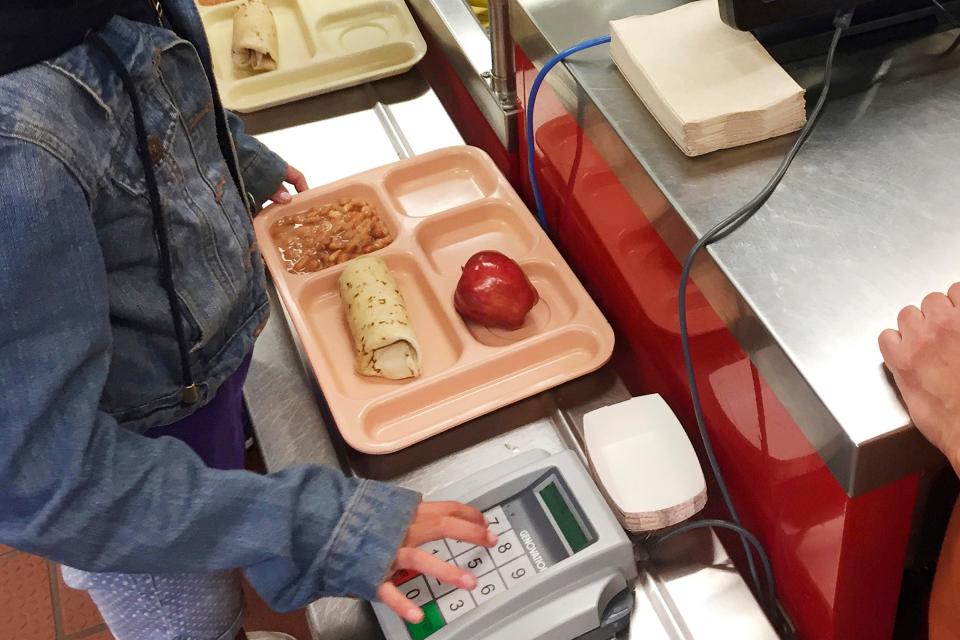Many children still go to school hungry. Here's how to stop that. | Opinion
Sen. Sandra Cano, chairwoman of the Senate Education Committee, represents District 8 in Pawtucket. Sen. Jonathon Acosta represents District 16 in Central Falls and Pawtucket. Sen. Valarie J. Lawson, a social studies teacher at East Providence High School, represents District 14 in East Providence.
We have all seen the studies. We have all seen the data. It is also simple common sense that children perform better in school if they are properly fed. So why are some of our children still going through the school day hungry?
Yes, many students qualify and utilize the free or reduced lunch program in our schools, but this long-time program comes with its own issues. Too many children are still going hungry. And what about the children whose families are economically struggling but make just above the program income qualifications? They are slipping through the cracks, often with nothing to eat at school at all. Empty and growling bellies are not conducive to a successful learning environment. The way we ensure that our students are properly fed needs to change.
More: 'Generous community:' Smithfield company covers unpaid school lunch balance
The issue is once again coming to the forefront due to a federal pandemic program expiring that required free lunch for all students. But the reality is, the Rhode Island Senate has been focusing on this serious issue for quite some time. And with significant economic uncertainty rising, along with stifling inflation, families are already struggling with the essential costs of housing and food, leading to more kids focused on their hunger rather than their studies.

Critics argue that the current program works just fine, but they ignore the isolation and social stressors that arise from being labeled as the poor kid who needs the free lunch. When this dynamic is combined with the deteriorating mental health of our students caused by the pandemic and other social factors, it causes students to simply avoid the bullying by not eating their “poor kid’s lunch.”
We know what the solution is, we just need to prioritize what is truly important to our society in order to act. Study after study has shown the tremendous health, social and educational benefits that come with having universal free school lunch. Academic performance, better physical and mental health, social cohesion – all of these important metrics rise significantly when universal free school lunch is offered. The data is there and it is overwhelmingly clear.
More: Here's how supply chain issues may affect Rhode Island school lunches
Our society cannot thrive without successful students growing into successful adults, and this necessary transformation cannot occur if our kids are going hungry throughout their school day. Universal free school lunch is the solution to this serious problem, which is why the we have been introducing legislation to provide universal free school lunch since before the pandemic.
Once again this session, we have introduced this essential bill (2023-S0068) because the need for universal free lunch in our schools is only getting worse due to societal factors that are completely out of our children’s control. Keeping our students fed and prepared for success is the greatest investment we can make. It’s about time that we start supporting Rhode Island’s future by enacting the tested and proven universal free lunch program in our state.
This article originally appeared on The Providence Journal: Studies show the tremendous health, social and educational benefits that come with having universal free school lunch.

